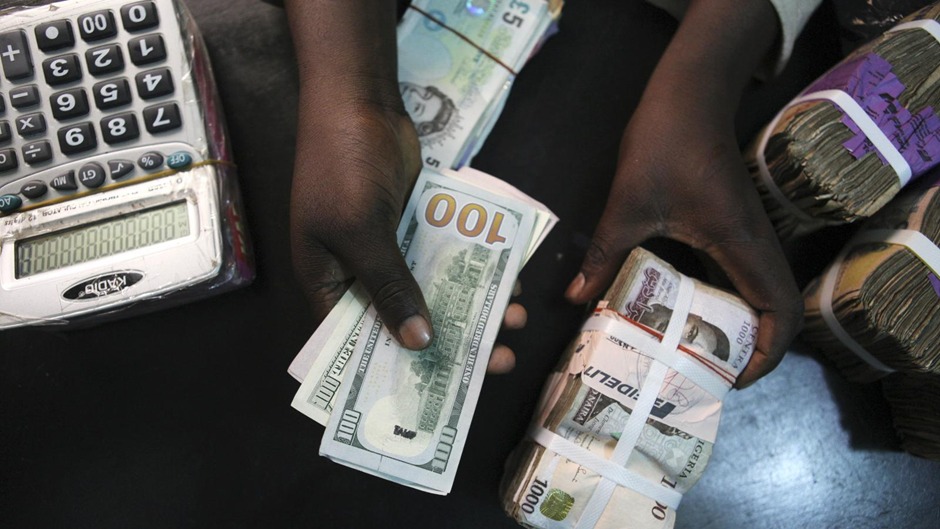Through the Nigeria Identification for Development (ID4D) project, international financiers led by the World Bank are pushing for the enrolment of all Nigerians for the National Identification Number (NIN). The devaluation of the Naira resulted in a forex gain of N8.6 billion for this program.
This was revealed in the recently issued 2023 audited financial account for the project by the World Bank.
The European Investment Bank (EIB), the French Development Agency (AFD), and the International Development Association (IDA) are all contributing funding to the $430 million initiative, which was initiated in 2020.
Funds received from financiers in US dollars or euros (€) are reportedly converted into Nigerian naira (NGN) upon withdrawal at the exchange rate in effect on that date, which is determined by the CBN Autonomous Foreign Exchange Market (AFEM).
Funds Received
Per the report, the Central Bank of Nigeria (CBN) and the National Identity Management Commission (NIMC) received a total of $2,538.92 and €3.03 million in the reviewed year, respectively, for managing the project’s USD and EURO-denominated accounts.
According to the research, one dollar, which was valued at N448.05 at the start of the year, ended up being worth N898.8, while one EURO, which was valued at N478.3 in January 2023, ended up being worth N993.9.
The drop in the value of the Naira resulted in a currency gain of N8.6 billion.
“During the period, the Project’s transactions were conducted in local currency (NGN). A foreign exchange gain of N8,607,679,554.68 has been acknowledged,” according to the report.
What this implies
Naira is currently worth roughly N1,600/$1 and N1,750/€. This means that NIMC will have more money to pay for some unfinished project aspects, such as purchasing power backup systems, enhancing the telecommunications between NIMC’s key backend sites, purchasing a Computer Emergency Response Team (CERT) and Security Operations Centre (SOC), renovating the data recovery centre (DRC), and purchasing a contact centre and CRM software.
As of June 2024, the World Bank reports that the project disbursement rate was 37.37%. This indicates that of the $430 million allocated, only roughly $160.7 million has been disbursed.
The project was originally scheduled to end on June 30, 2024, but the Bank said last month that it would be restructured and extended to guarantee complete payment and achieve the initiative’s goals.
The NIMC Amendment Bill will allow for further payouts
Nigeria has not yet fulfilled one of the requirements for the release of additional funds for the project’s implementation, according to the World Bank’s project restructuring document that was made public in July.
“One final disbursement condition which has yet to be met is the amendment of the NIMC Act to promote an inclusive and non-discriminatory legal and regulatory framework,” the statement continued.
The Nigerian National Assembly has started the process of repealing and enacting the NIMC Act No. 23, according to a statement released by the NIMC last week. It further stated that the NIMC Amendment Bill is an important piece of legislation aimed at improving the Identity Management System’s effectiveness and inclusion.
“The amendments seek to fortify the foundational framework of the NIMC and its operations by; Expanding the Scope of Registrable Persons.”
“A more comprehensive and inclusive identification system benefits the nation by enhancing national security, facilitating efficient service delivery, and promoting financial inclusion,” NIMC stated in a statement that was signed by Kayode Adegoke, Head of Corporate Communications.
What to note
In order to make it easier for citizens to access digital services, the ID4D initiative, which was approved by the IDA Board in 2020, aims to expand the number of people who have a national ID number issued by the NIMC.
The initiative was planned to end on June 30, 2024, and the nation intended to meet some goals by then. But a lot of the goals haven’t been met, therefore the reorganization and 2026 extension are required.
As of April 2024, only 107.3 million Nigerians had received NINs, according to NIMC.
The Bank stated other aims, in addition to providing NIN to 148 million Nigerians by 2024, such as providing NIN to at least 65 million female Nigerians by June 1, 2024, and 50 million NIN to children under the age of sixteen.
The development of pro-poor functional public and private services that use the foundational ID system for authentication and service delivery, NIN enrolment in rural areas, and government staff trained in best practices for legal and regulatory enabling environments for foundational ID, including privacy and data protection, are among the other performance indicators set for the nation. All of these were expected to be accomplished by June 2024.



